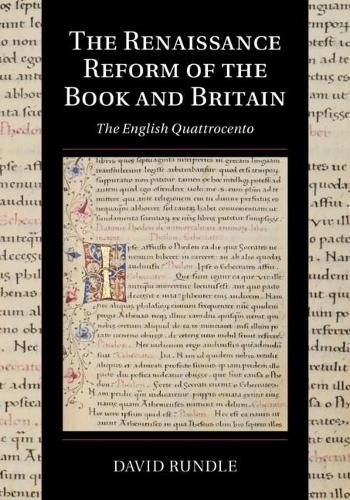Readings Newsletter
Become a Readings Member to make your shopping experience even easier.
Sign in or sign up for free!
You’re not far away from qualifying for FREE standard shipping within Australia
You’ve qualified for FREE standard shipping within Australia
The cart is loading…






What has fifteenth-century England to do with the Renaissance? By challenging accepted notions of ‘medieval’ and ‘early modern’ David Rundle proposes a new understanding of English engagement with the Renaissance. He does so by focussing on one central element of the humanist agenda - the reform of the script and of the book more generally - to demonstrate a tradition of engagement from the 1430s into the early sixteenth century. Introducing a cast-list of scribes and collectors who are not only English and Italian but also Scottish, Dutch and German, this study sheds light on the cosmopolitanism central to the success of the humanist agenda. Questioning accepted narratives of the slow spread of the Renaissance from Italy to other parts of Europe, Rundle suggests new possibilities for the fields of manuscript studies and the study of Renaissance humanism.
$9.00 standard shipping within Australia
FREE standard shipping within Australia for orders over $100.00
Express & International shipping calculated at checkout
What has fifteenth-century England to do with the Renaissance? By challenging accepted notions of ‘medieval’ and ‘early modern’ David Rundle proposes a new understanding of English engagement with the Renaissance. He does so by focussing on one central element of the humanist agenda - the reform of the script and of the book more generally - to demonstrate a tradition of engagement from the 1430s into the early sixteenth century. Introducing a cast-list of scribes and collectors who are not only English and Italian but also Scottish, Dutch and German, this study sheds light on the cosmopolitanism central to the success of the humanist agenda. Questioning accepted narratives of the slow spread of the Renaissance from Italy to other parts of Europe, Rundle suggests new possibilities for the fields of manuscript studies and the study of Renaissance humanism.